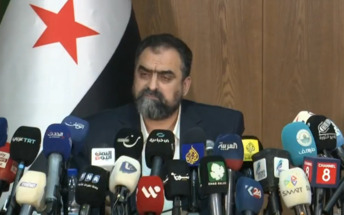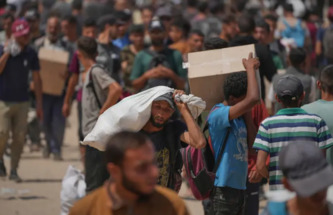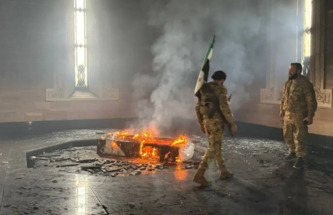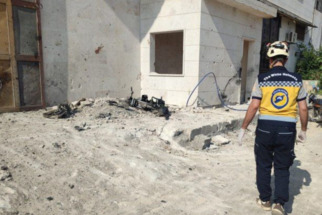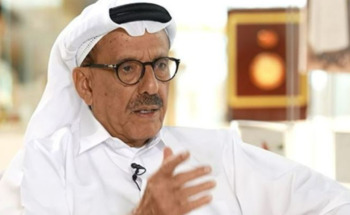-
Iran Prefers Omani Mediation for Negotiations with Washington
-
Iranian diplomatic maneuvering in rejecting direct negotiations while accepting Omani mediation reflects an attempt to save face domestically while keeping international dialogue channels open amid in
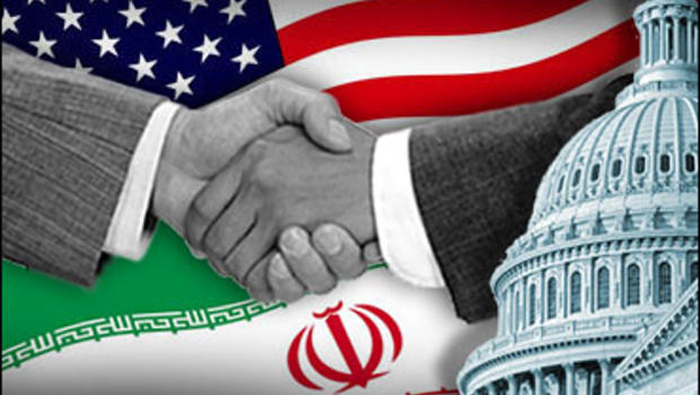
A senior Iranian official revealed instructions from Supreme Leader Ali Khamenei to place the armed forces on maximum alert, amid escalating verbal tension between Tehran and Washington, despite the Iranian side confirming its readiness for indirect negotiations with the US administration. This step reflects the state of anticipation and caution dominating the Iranian position amid increasing threats from the American side.
The Iranian official warned today, Sunday, that any attack on his country "would have dire consequences," according to Reuters. These statements come as a direct response to recent American threats, increasing tension between the two countries.
He explained that the Iranian authorities, who previously stated their refusal to hold direct talks with Washington regarding the nuclear agreement, are seeking to enter into dialogue through the Sultanate of Oman as a mediator. Omani mediation represents a middle ground for the Iranian side, which is trying to balance between domestic policy requirements and international pressures.
He added that "indirect negotiations provide an opportunity to assess the seriousness of America's intentions regarding a political solution to the Iranian issue." These statements indicate a kind of Iranian caution and suspicion toward American proposals, with a desire to test Washington's seriousness.
Iranian Foreign Minister Abbas Araghchi, for his part, emphasized earlier today the rejection of direct negotiations with the United States, but kept the field open for holding indirect talks about his country's nuclear program. The positions of Iranian officials reflect a consistent strategy that combines rejecting direct negotiation and accepting mediation.
The Chief of Staff of the Iranian Armed Forces, Mohammad Bagheri, took the same approach, confirming that his country is not seeking war. This statement shows an Iranian attempt to calm tensions while maintaining a firm stance toward any potential threats.
At the same time, he indicated that Tehran would decisively confront any aggression targeting its territory, sovereignty, or security. These warnings represent a clear message to the US administration that Iran is ready to respond to any military escalation.
Those statements came after Trump announced last month that he sent a message to Khamenei on March 5, aiming to negotiate a new nuclear deal, giving Tehran a two-month deadline, and emphasizing his preference for dialogue over confrontation.
These correspondences reveal behind-the-scenes diplomatic attempts despite hardline public statements from both sides. The Iranian authorities responded to the mentioned message on the 30th of last month, explaining their readiness for indirect dialogue.
The option of indirect diplomacy remains Tehran's preferred path to exit the current crisis while maintaining its principled positions. Trump returned to threaten military confrontation if Iran rejected negotiations, while Khamenei warned that his country would deliver a painful blow to anyone who attacks it.
Fears of escalation possibilities increase in light of these mutual threats, making the role of Omani mediation extremely important in the coming period.
You May Also Like
Popular Posts
Caricature
BENEFIT Sponsors BuildHer...
- April 23, 2025
BENEFIT, the Kingdom’s innovator and leading company in Fintech and electronic financial transactions service, has sponsored the BuildHer CityHack 2025 Hackathon, a two-day event spearheaded by the College of Engineering and Technology at the Royal University for Women (RUW).
Aimed at secondary school students, the event brought together a distinguished group of academic professionals and technology experts to mentor and inspire young participants.
More than 100 high school students from across the Kingdom of Bahrain took part in the hackathon, which featured an intensive programme of training workshops and hands-on sessions. These activities were tailored to enhance participants’ critical thinking, collaborative problem-solving, and team-building capabilities, while also encouraging the development of practical and sustainable solutions to contemporary challenges using modern technological tools.
BENEFIT’s Chief Executive Mr. Abdulwahed AlJanahi, commented: “Our support for this educational hackathon reflects our long-term strategic vision to nurture the talents of emerging national youth and empower the next generation of accomplished female leaders in technology. By fostering creativity and innovation, we aim to contribute meaningfully to Bahrain’s comprehensive development goals and align with the aspirations outlined in the Kingdom’s Vision 2030—an ambition in which BENEFIT plays a central role.”
Professor Riyadh Yousif Hamzah, President of the Royal University for Women, commented: “This initiative reflects our commitment to advancing women in STEM fields. We're cultivating a generation of creative, solution-driven female leaders who will drive national development. Our partnership with BENEFIT exemplifies the powerful synergy between academia and private sector in supporting educational innovation.”
Hanan Abdulla Hasan, Senior Manager, PR & Communication at BENEFIT, said: “We are honoured to collaborate with RUW in supporting this remarkable technology-focused event. It highlights our commitment to social responsibility, and our ongoing efforts to enhance the digital and innovation capabilities of young Bahraini women and foster their ability to harness technological tools in the service of a smarter, more sustainable future.”
For his part, Dr. Humam ElAgha, Acting Dean of the College of Engineering and Technology at the University, said: “BuildHer CityHack 2025 embodies our hands-on approach to education. By tackling real-world problems through creative thinking and sustainable solutions, we're preparing women to thrive in the knowledge economy – a cornerstone of the University's vision.”
opinion
Report
ads
Newsletter
Subscribe to our mailing list to get the new updates!


